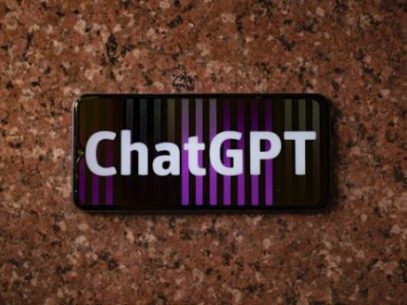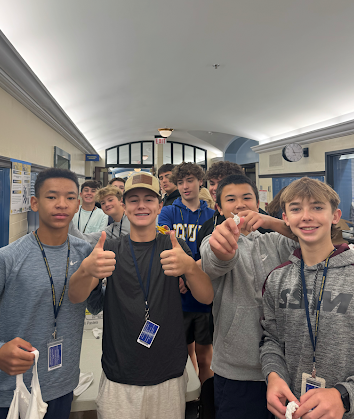
When news broke that U.S. History students would no longer have to write the annual research paper – a paper that was once a requirement for students to graduate – many assumed AI was to blame.
While AI technology was not the sole reason for the paper’s removal from the curriculum, it was certainly a deciding factor in the department’s decision.
“The emergence of Large Language Models like ChatGPT became an important consideration at the end of our decision-making process,” said Instructional Director for the Social Studies Department Mr. Stephen Dunn. “We ultimately decided that there were better ways than a lengthy research paper to help students develop their capacity for original scholarship.”
In the past year, AI – most notably programs such as ChatGPT – has become a frequent and controversial topic in the world of education. The technology has an impressive range of capabilities, in fact, a student could potentially use AI to produce an essay in a matter of seconds. This brings about plenty of ethical concerns in the classroom, especially regarding plagiarism, and has even prompted some teachers to switch over to paper assignments to ensure academic integrity.
“When a student uses AI or plagiarizes from outside sources, they’re giving up the chance to be insightful or original. They’re robbing themselves of a chance to practice critical thinking, which is a huge part of the purpose of education,” said English 3-H and AP Literature teacher Mrs. Jane Eccleston.
In her English 3H classes this year, Eccleston has switched written analytical responses from homework assignments to in-class assignments – taken in a lockdown browser – to ensure authenticity.
Eccleston is not the only one making changes to the classroom. Many teachers have started to rely on classroom conversations as reflections of student interpretations and learning.
Among academic areas affected by the increasing number of students utilizing AI, the Social Studies and English Departments, whose subjects rely heavily on analytical work to assess student learning, have made numerous changes.
In the English Department, where the curriculum relies largely on writing, teachers have resorted to assigning students in-class essays on Google Documents that are overseen in real-time by the tech staff. Therefore the Tech Department can monitor students’ editing history and revisions, to ensure academic integrity. Additionally, many teachers have started to use Turnitin.com to monitor student writing as it has a very accurate AI detector. Some teachers have also modified the way they deliver their assignments to students.
“I came to the conclusion that the assignments I create are intentional and link thoughtfully and specifically to the curricular activities conducted in my classroom,” said AP seminar and US history teacher Mrs. Laura Flangel. “The thinking I ask of my students outside of class is usually related directly to a source of history or a source of information which I hope makes AI less appealing.”
While AI has brought forth lots of concerns in the classroom, the English and History departments also acknowledge the importance of teaching students how to use AI ethically to enhance their learning.
“There are already AI tools under development that can give students more personalized learning experiences, give them immediate feedback on their work, and guide them through problem-solving. We will certainly want to see how these tools might enrich student learning,” said Dunn.
Many English classes have introduced assignments that allow students to explore how they could use AI in a purposeful way. For example, in journalism classes, students entered an article they had written into AI and asked the program to make suggestions. Students found that the AI was effective in making grammatical changes, but could not produce meaningful feedback on the actual content the same way a real human being could.
While acknowledging minor changes may be necessary, Instructional Director for the English Department Mrs. Kristen Carlson is hopeful the English curriculum will remain fairly stable despite the potential advancement of AI technology in the future.
“AI isn’t doing what people think that it can do in terms of mimicking human emotions, thinking, and interpretations,” said Carlson.
At the simplest level, the English and social studies curricula are rooted in the values of critical thinking, risk-taking, and educated questioning. Determining how to best put forth these values in the classroom is a top priority.
“When all you have available is the text and your brain, you have to rely on your own insights. My hope is that the students will realize that they can do really good work on their own, they’ll start to trust themselves more, and they’ll see how much more the ideas are worth when you have to struggle for them a little,” said Eccleston.








Jason • Sep 18, 2023 at 8:49 am
so far, 4 people (out of 21 total respondents) were foolish enough to openly admit that they used a LLM for the purposes of academic fraud. I assume that many more either ignored the question or falsely answered “no”. This is indeed unsettling.